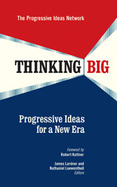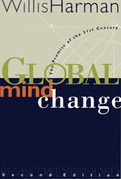2003
Today's business world is characterized by increasing change-technological, cultural, social, economic, and personal-the net effect of which is increasing anxiety, insecurity, and more pressure than perhaps ever before on today's employees, managers, and business owners. Managing By Values provides a practical, proven new solution for addressing these issues. Ken Blanchard and Michael O'Connor provide a framework for stability, continuity, and growth in the midst of these challenges.
Managing By Values describes a new measure and level of organizational success-beyond that of "Fortune 500" organizations. Blanchard and O'Connor show how organizations can commit to a way of doing business that enables all stakeholders-owners/shareholders, employees, customers, and others-to win. By committing to a common purpose and set of values, any organization can join the ranks of the "Fortunate 500." This list is defined, not by size or volume or profits, but by the quality of service available to customers and the quality of life accessible to employees.
Numerous books written over the last decade have stated both the need for, and power of, an organizational culture whose strategies, processes, and people are managed by a common vision, purpose, and set of values. Managing By Values goes beyond merely lobbying for such a management approach. Blanchard and O'Connor provide readers with a practical game plan that clarifies, communicates, and aligns the organization's practices at all levels and in all areas, with a defined, functional set of guiding values adopted throughout the organization. Many previous books have addressed the importance of values, but Managing By Values provides a clear methodology for defining and implementing such values to achieve organizational, group, team, and individual objectives.
Written in the simple, direct story format that has become a trademark of Ken Blanchard's previous books, Managing By Values builds on the mass of diverse research, experiences, and literature on organizational, group, and individual performance and satisfaction. Based on the authors' research and applied real-world experience with client organizations, Managing By Values provides a practical, proven approach for how to give your organization the gift of a promising future while also discovering a way for all of its stakeholders to be satisfied in the process.
- From the coauthor of The One Minute Manager, one of the bestselling business books of all time (over 9 million copies sold), and Empowerment Takes More Than a Minute (a 1996 BusinessWeek bestseller)
- Provides a concise game plan for designing and implementing a set of guiding values to achieve organizational, group, team, and individual objectives
2023 Nautilus Book Award Silver Medalist (Social Change & Social Justice)
This is the first in-depth examination of the important ongoing fusion of activism, capitalism, and social change masterfully told through a compelling narrative filled with vivid stories and striking studies.
Corporations and their executives are at the forefront of some of the most contentious and important social issues of our time. Through pronouncements, policies, boycotts, sponsorships, lobbying, and fundraising, corporations are actively engaged in issues like immigration reform, gun regulation, racial justice, gender equality, and religious freedom.
Despite corporate social activism being everywhere these days-witness how quickly companies and progressives united to oppose North Carolina's bathroom bill or support the Black Lives Matter movement-there has been no in-depth examination of the far-reaching consequences of this movement. What first principles should guide businesses' approaches? How should activists engage with businesses in a way that is most beneficial to their causes? What are potential pitfalls and risks associated with corporate social activism for activists, businesses, and society at large? Weaving studies and stories, Temple University professor of law, Tom C. W. Lin offers a road map for how we got here and a compass for where we are going as a nation of capitalists and activists seeking profit and progress.
Davis worked her way up to reporting on many of the most explosive stories of recent times, including the Vietnam War protests, the rise and fall of the Black Panthers, the Peoples Temple cult mass suicides at Jonestown, the assassinations of San Francisco Mayor George Moscone and Supervisor Harvey Milk, the onset of the AIDS epidemic, and the aftermath of the terrorist attacks that first put Osama bin Laden on the FBI's Most Wanted List. She encountered a cavalcade of cultural icons: Malcolm X, Frank Sinatra, James Brown, Ronald Reagan, Huey Newton, Muhammad Ali, Alex Haley, Fidel Castro, Dianne Feinstein, Condoleezza Rice, and others.
Throughout her career Davis soldiered in the trenches in the battle for racial equality and brought stories of black Americans out of the shadows and into the light of day. Still active in her seventies, Davis, the “Walter Cronkite of the Bay Area,” now hosts a weekly news roundtable and special reports at KQED, one of the nation's leading PBS stations,. In this way she has remained relevant and engaged in the stories of today, while offering her anecdote-rich perspective on the decades that have shaped us.
- The inspiring autobiography of an American pioneer
- Features vivid stories of Davis's encounters with famous people and historic events
- Honest, revealing, at times humorous, at times harrowinga deeply important document of our times.
As the first black female television journalist in the western United States, Belva Davis overcame racism and sexism and helped change the face and focus of television news. She shares the story of her extraordinary life in her poignantly honest memoir.
Davis is no stranger to adversity. Born to a fifteen-year-old Louisiana laundress during the Great Depression and raised in the overcrowded projects of Oakland, California, Davis suffered abuse, battled rejection, and persevered to achieve a career beyond her imagination. She has seen the world change in ways she never could have envisioned, from being verbally and physically attacked while reporting on the 1964 Republican National Convention in San Francisco to witnessing the historic election of Barack Obama in 2008.
Davis reported many of the most explosive stories of modern times, including the Vietnam War protests, the Black Panthers, the Peoples Temple cult mass suicides at Jonestown, the assassinations of San Francisco Mayor George Moscone and Supervisor Harvey Milk, the onset of the AIDS epidemicand from Africa, the aftermath of the terrorist attacks that first put Osama bin Laden on the FBIs Most Wanted List. She encountered a cavalcade of cultural icons: Malcolm X, Frank Sinatra, James Brown, Nancy Reagan, Huey Newton, Muhammad Ali,
Alex Haley, Fidel Castro, Dianne Feinstein, Condoleezza Rice, and others.
Belva Davis soldiered in the trenches in the battle for racial equality and brought stories of black Americans out of the shadows and into the light of day. Now in her seventies, the Walter Cronkite of the Bay Area hosts a weekly news roundtable and special reports at KQED, one of the nations leading PBS stations.
Click here for the press release
2009
2006
- Provides a blueprint for entrepreneurs who want to grow their socially responsible business while remaining true to their principles
- Based on interviews with top executives at over thirty leading companies, including American Apparel, Give Something Back, Wild Planet Toys, Organic Valley Family of Farms, and Working Assets
- Offers nine key lessons that can be applied by businesses in any industry
1998
Revolutions are generally thought of as large-scale, bloody upheavals involving whoe countries and societies. But there are quieter revolutions that begin in the individual mind and create the kind of change that may be even more significant. By deliberately changing their internal image of reality, people are transforming the world. Right now we are living through one of the most fundamental shifts in histroy-a change in the actual belief structure of Western industrial society.
Global Mind Change, first published in 1988 and revised and expanded by the author just before his death in 1997, connects every major field of human endeavor in its exploration of the possibilities for social transformation through internal change. Harman, whose career spanned both the technical (electircal engineering) and psychological sciences, examines the role of consciousness in five areas:
o Mature science, which validates subjective, religious, and spiritual insights along with objective data as a way of describing reality
o Spirituality and consciousness research, which shows the compatibility between the world's religions and the insights of thousands of years of exploration of consciousness
o Health and healing, where the mind's role is increasingly recognized as a crucial influence on human wellness
o Psychology and psychotherapy, where research into unexplained phenomena and exceptional mental and physical abilities proves the only human limits are those we believe in
o Economics and management, where managers are utilizing brain-mind research to release employees' creativity, and corporations are addressing global issues of poverty, security, and the environment
Revolutions are generally thought of as large-scale, bloody upheavals involving whoe countries and societies. But there are quieter revolutions that begin in the individual mind and create the kind of change that may be even more significant. By deliberately changing their internal image of reality, people are transforming the world. Right now we are living through one of the most fundamental shifts in histroy-a change in the actual belief structure of Western industrial society.
Global Mind Change, first published in 1988 and revised and expanded by the author just before his death in 1997, connects every major field of human endeavor in its exploration of the possibilities for social transformation through internal change. Harman, whose career spanned both the technical (electircal engineering) and psychological sciences, examines the role of consciousness in five areas:
o Mature science, which validates subjective, religious, and spiritual insights along with objective data as a way of describing reality
o Spirituality and consciousness research, which shows the compatibility between the world's religions and the insights of thousands of years of exploration of consciousness
o Health and healing, where the mind's role is increasingly recognized as a crucial influence on human wellness
o Psychology and psychotherapy, where research into unexplained phenomena and exceptional mental and physical abilities proves the only human limits are those we believe in
o Economics and management, where managers are utilizing brain-mind research to release employees' creativity, and corporations are addressing global issues of poverty, security, and the environment

















